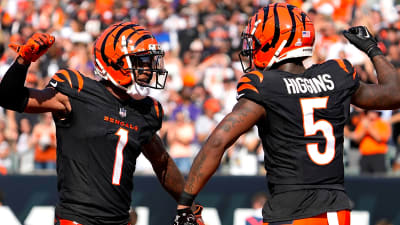
Looking back over the 2023-24 season for the Toronto Maple Leafs revealed several surprises, one of the most notable being William Nylander‘s performance and ensuing commitment to his team. Entering the season, there were significant questions about Nylander’s fit within the team and his future with the organization. However, Nylander silenced critics with a stellar start, setting team records for consecutive games with points.
Beyond his on-ice achievements, Maple Leafs fans also gained deeper insight into Nylander’s dedication to the team. Initially, there was uncertainty and some confusion surrounding his contract situation. Nevertheless, Nylander ultimately signed a long-term deal, solidifying his role as a core member of the Maple Leafs’ future. This resolution has brought a sense of stability and optimism, contrasting with the doubts that loomed at the season’s start.
Nylander’s journey this season has highlighted his skill and his unwavering commitment to the team. At the same time, the surprising truth about Nylander is that he’s also loyal and committed to his teammates.
More to the Story: Nylander’s Perspective Was Revealed
In professional sports, it’s easy to misconstrue a player’s commitment to their team. A recent example was Nylander and how he engaged in his contract negotiations with the Maple Leafs. After Auston Matthews signed his contract extension, Nylander did not follow suit. That led many fans and analysts to suggest that Nylander’s attitude was too cavalier and that he didn’t care enough about his team. However, the truth proved to be more complex. Nylander’s issue might not be that he cares too little but too much—about the wrong things, at least from the organization’s perspective.
Reviewing the contract negotiations between Nylander and the Maple Leafs gave the impression of a laid-back attitude. However, this perceived indifference might be misleading. Nylander’s hesitation to sign an extension could indicate a different perspective. There’s significant external pressure for him to prioritize the team’s needs and be a good soldier. However, his actions suggested he might be more concerned about his personal connections and relationships with teammates than his loyalty to the organization.
Insights from Rasmus Sandin and the Human Side of Sports
An interview with Rasmus Sandin, Nylander’s closest friend on the team, revealed much about Nylander’s feelings. Sandin, who was traded to the Washington Capitals at the trade deadline, highlighted the deep relationships among players. These players, who battle together on the ice game after game, build a camaraderie that transcends other relationships, becoming like family. Sandin’s abrupt and surprising trade raised questions about how Nylander perceives the fragile nature of personal bonds within the team.
Being a professional athlete means accepting that you cannot control everything about where or with whom you play. Players can be traded at the will of the organization. In Sandin’s case, he and Nylander had been friends for eight years. After the trade, although it wasn’t said aloud, Nylander was asked to cement his loyalty to the organization that traded away his best friend. Such situations challenge the conventional narrative of loyalty in professional sports.
A New Understanding of Nylander’s Commitment to the Maple Leafs
Did Nylander’s reluctance to rush into a contract extension stems from his growing awareness of balancing personal connections and team demands? He had learned that he couldn’t control Sandin’s destination, but he could exert some control over his situation. This might not be about Nylander caring too little; instead, he cares too much. He’s learning to let go of things beyond his control and to navigate the complexities of being a professional athlete.
The Sandin interview provided a potential new understanding of Nylander’s perspective. This insight required looking beyond team expectations and recognizing the intricate dynamics that shape players’ decisions. By acknowledging the human aspect often overlooked in professional sports, we can better understand the decisions players like Nylander make.
The Bottom Line for Nylander and the Maple Leafs
In conclusion, Nylander’s actions did not reflect a lack of commitment to the Maple Leafs. Rather, they reflected a deep concern for his relationships and a desire to balance these with his professional obligations. This nuanced view challenges the simplistic notion of loyalty and highlights the complex realities professional athletes face.
More must-reads:
- Five worst signings from the first day of NHL free agency
- Best, worst value contracts signed so far in NHL free agency
- The 'First-overall NHL Draft picks' quiz
Breaking News
Trending News
Customize Your Newsletter
 +
+
Get the latest news and rumors, customized to your favorite sports and teams. Emailed daily. Always free!








